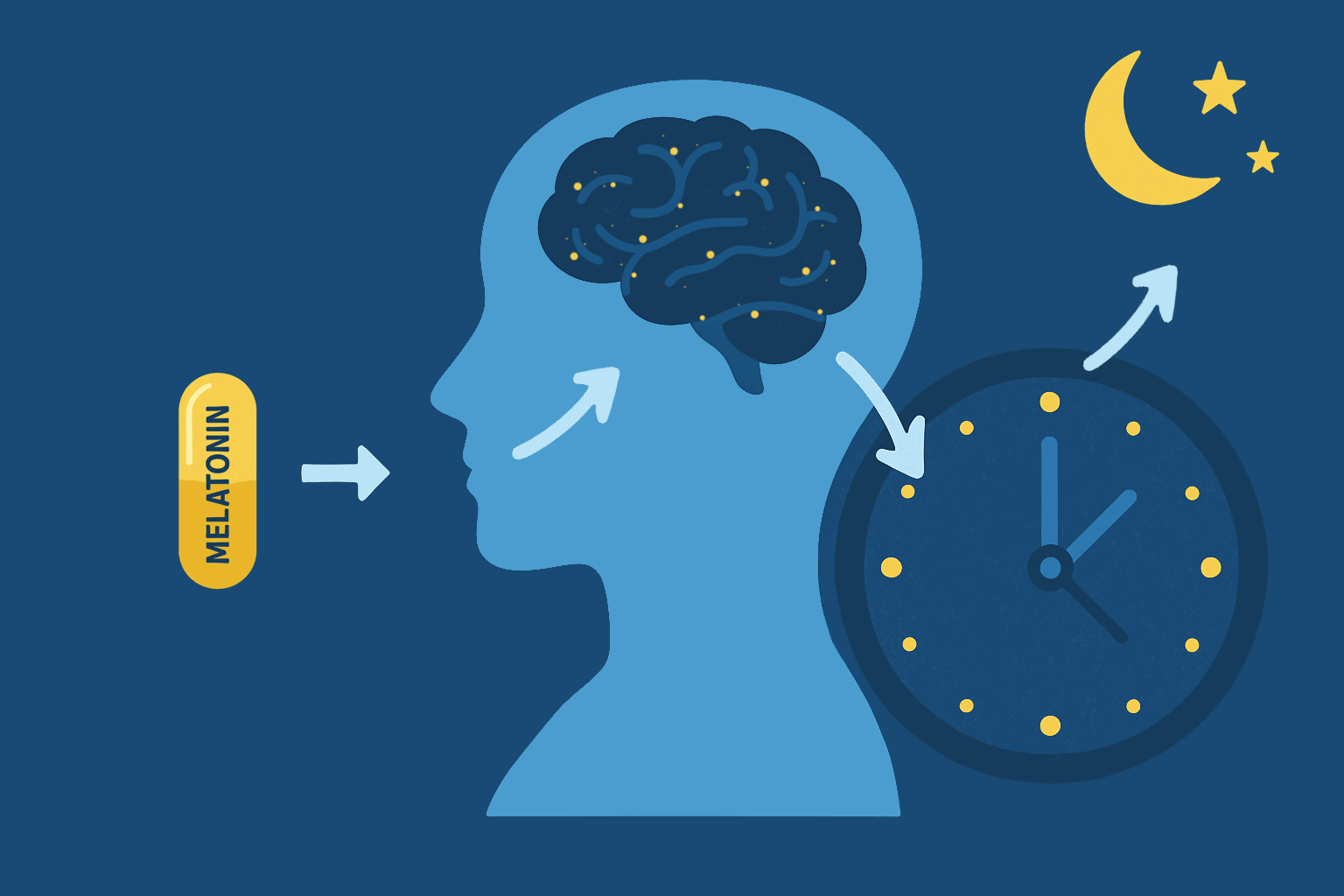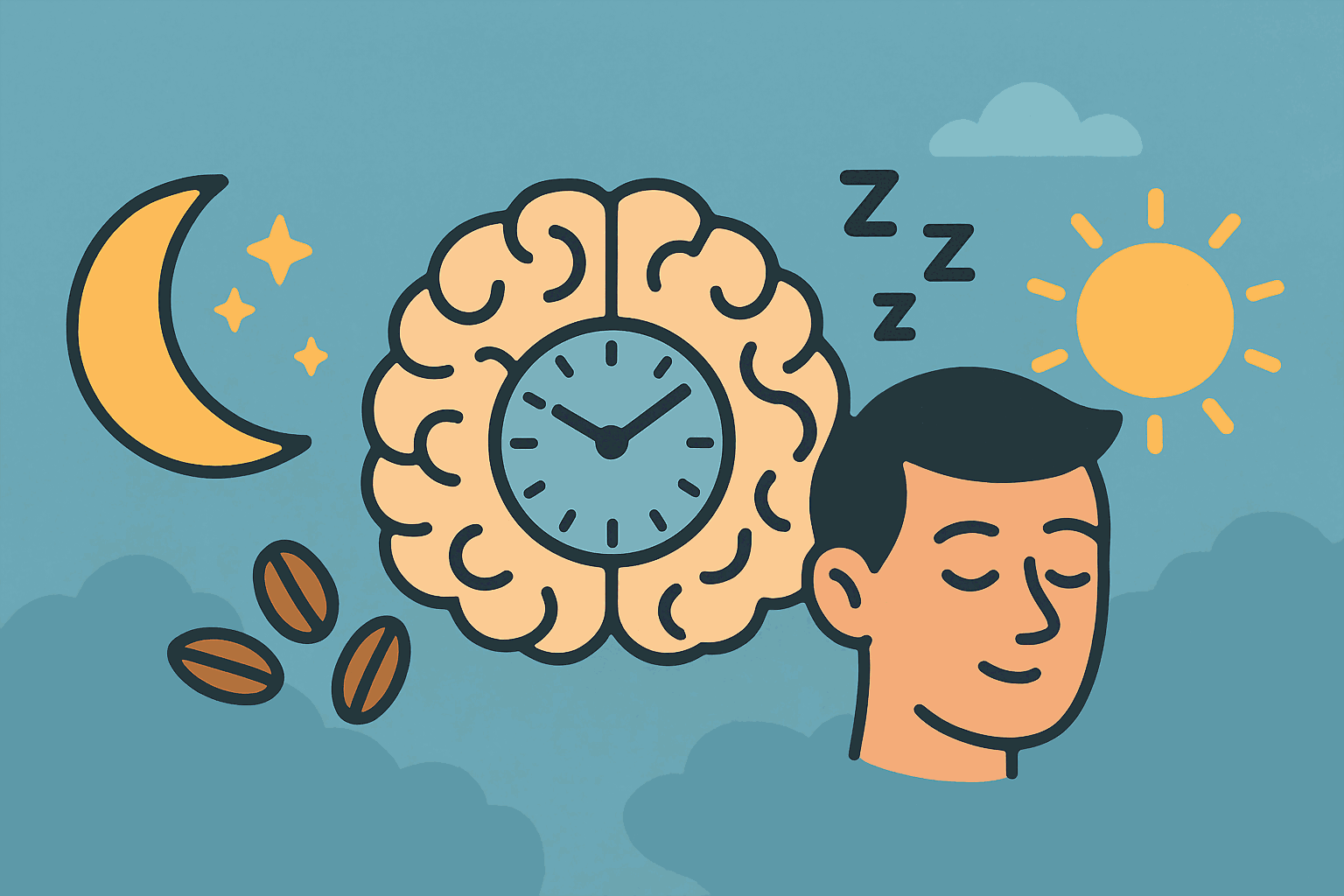
Melatonin: Hormone, Not Just a Harmless Sleep Aid
- Olivia Hart
- Health , Sleep science , Hormonal health
- May 6, 2025
Table of Contents
Melatonin: Understanding the Body’s Natural Sleep Signal
Melatonin is widely known and increasingly popular as an over-the-counter sleep aid. However, it’s crucial to understand that melatonin is not merely a supplement; it’s a potent hormone naturally produced by the pineal gland in your brain. Its primary role is to regulate the body’s circadian rhythm – our internal clock that manages the sleep-wake cycle. When darkness falls, melatonin production increases, signaling to the body that it’s time to prepare for sleep.
While supplemental melatonin can be helpful in specific situations, its widespread availability often leads to misconceptions about its nature and safety. Treating it like a simple vitamin or herbal remedy overlooks its powerful effects on the body’s intricate hormonal balance.
The Risks of Uncontrolled Melatonin Supplementation
Because melatonin is a hormone, taking it supplementally requires a conscious and cautious approach. Uncontrolled or excessive use can lead to undesirable consequences, particularly concerning the endocrine system.
Hormonal and Endocrine Disruption
The body’s endocrine system is a delicate network. Introducing external hormones like melatonin can potentially disrupt this balance. Research suggests that prolonged use, especially at higher doses, might interfere with the hypothalamic-pituitary-adrenal (HPA) axis, a critical system managing stress response and overall hormonal equilibrium (Neuroscience & Biobehavioral Reviews, 2022). This disruption could have wide-ranging effects beyond just sleep.
Furthermore, relying on external melatonin, particularly long-term use of high doses (often considered >5 mg/day), might theoretically decrease the body’s own natural ability to produce melatonin, potentially worsening sleep issues when the supplement is stopped.
Reproductive Health Concerns
Melatonin interacts with the reproductive system. Concerns exist that high doses or long-term use could potentially interfere with reproductive hormones. This is particularly significant for children and adolescents, whose hormonal and reproductive systems are still developing. Melatonin can influence gonadotropin levels, hormones essential for normal sexual maturation. Disrupting these could potentially delay or alter puberty and reproductive development.
Side Effects and Cognitive Impacts
Higher dosages significantly increase the risk of side effects. According to research published in Drug Metabolism and Drug Interactions (data consistent with reviews like the one cited), dosages exceeding 10 mg are more likely to cause:
- Daytime drowsiness or grogginess
- Headaches
- Dizziness
- Nausea
- Potential mood changes or depressive states
- Reduced cognitive function or “brain fog”
Dosage and Responsible Use: Less is Often More
If melatonin supplementation is considered, the principle should be “start low, go slow.” Many studies showing benefits for certain sleep issues (like jet lag or delayed sleep-wake phase disorder) use doses in the 0.5 mg to 3 mg range, often taken shortly before bedtime. Doses as low as 0.5-1 mg are frequently effective for circadian rhythm adjustments.
Key Recommendations:
- Consult a Healthcare Professional: Always discuss melatonin use with your doctor or a qualified healthcare provider before starting. They can help determine if it’s appropriate for your situation, rule out underlying conditions, and recommend a safe starting dose. This is essential for children and adolescents.
- Use the Lowest Effective Dose: Avoid high doses unless specifically recommended and monitored by a doctor.
- Short-Term Use: Melatonin is generally intended for short-term use (e.g., managing jet lag, short periods of sleep adjustment). Long-term use should only occur under medical supervision.
- Quality Matters: Be aware that supplement quality and actual dosage can vary significantly between brands. Choose reputable manufacturers.
Prioritizing Natural Sleep Strategies: The Foundation of Healthy Sleep
Before turning to hormonal supplements, focus on optimizing lifestyle factors that naturally support healthy sleep. This approach, often called sleep hygiene, is safer and more sustainable long-term:
- Consistent Schedule: Go to bed and wake up around the same time every day, even on weekends.
- Optimize Your Sleep Environment: Keep your bedroom dark, quiet, and cool.
- Limit Evening Screen Time: The blue light from phones, tablets, and computers suppresses natural melatonin production. Avoid screens for at least an hour before bed.
- Mind Your Diet: Avoid heavy meals, caffeine, and excessive alcohol close to bedtime.
- Manage Stress: Incorporate relaxation techniques like deep breathing, meditation, or gentle stretching.
- Get Regular Exercise: Physical activity promotes better sleep, but avoid intense workouts close to bedtime.
- Sunlight Exposure: Get natural sunlight exposure in the morning to help anchor your circadian rhythm.
Melatonin supplementation should generally be considered only when these foundational methods have proven ineffective for a specific, diagnosed sleep issue, and always under the guidance of a specialist.
Conclusion: Treat Melatonin with Respect
Melatonin is a powerful hormone, not just a benign sleep supplement. While it has legitimate uses under medical guidance, its potential to disrupt the endocrine system, affect reproductive health (especially in youth), and cause side effects necessitates a careful, evidence-based approach.
Prioritize robust sleep hygiene and lifestyle adjustments as your primary strategy for better sleep. If you’ve been casually using melatonin, especially in higher doses or long-term, consider it a hormonal intervention rather than a simple dietary supplement, and discuss its continued use with your healthcare provider.
Disclaimer: This article provides information based on scientific research and is intended for educational purposes only. It does not constitute medical advice. Always consult with a qualified healthcare professional before making any decisions about your health or treatment.
Further Reading & Resources:
- Melatonin Overview: National Center for Complementary and Integrative Health (NCCIH) - https://www.nccih.nih.gov/health/melatonin-what-you-need-to-know
- Sleep Hygiene Tips: Centers for Disease Control and Prevention (CDC) - https://www.cdc.gov/sleep/about_sleep/sleep_hygiene.html
- Melatonin Safety Review: Effectiveness and Safety of Melatonin as a Treatment for Primary Insomnia - https://onlinelibrary.wiley.com/doi/10.1155/2024/8869707
- Melatonin side effects: https://www.mayoclinic.org/healthy-lifestyle/adult-health/expert-answers/melatonin-side-effects/faq-20057874
Disclaimer
The information provided on BioBrain is intended for educational purposes only and is grounded in science, common sense, and evidence-based medicine. It is not a substitute for professional medical advice, diagnosis, or treatment. Always consult a qualified healthcare provider before making significant changes to your diet, exercise routine, or overall health plan.
Tags :
- Melatonin
- Sleep hormone
- Circadian rhythm
- Sleep
- Sleep aid risks
- Hormone regulation
- Endocrine system
- Reproductive health
- Sleep hygiene tips
- Evidence based medicine
- Melatonin dosage
- Children's health

